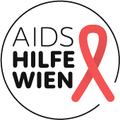People living with HIV sometimes still face significant disadvantages in the healthcare system and experience discriminatory behavior from healthcare professionals. That’s why we have to fight together against stigmatization and poor treatment.
Dr. Mirijam Hall, Chairwoman of Aids Hilfe Vienna
Vienna (OTS) – Aids Hilfe Vienna uses Zero HIV Stigma Day to inform society about HIV and the effects of stigmatization and to support those affected. Dr. Mirijam Hall emphasizes that education is the key here.
On the occasion of Zero HIV Stigma Day on July 21st, Aids Hilfe Vienna provides information about HIV-related stigmatization and discrimination: According to current data, 70% of all discrimination in Austria in 2023 took place in the healthcare system, but structural discrimination also occurs in various other areas . The stigmatization and associated disadvantages faced by HIV-positive people can have serious consequences for those affected, including depression, anxiety and reduced access to necessary medical care. This significantly affects both the psychological well-being and the adherence to treatment of those affected.
On the occasion of Zero HIV Stigma Day, Aids Hilfe Vienna is drawing attention to the urgent need to combat stigma and discrimination against people with HIV. Dr. Mirijam Hall, chairwoman of Aids Hilfe Vienna, emphasizes: „People living with HIV sometimes still face significant disadvantages in the healthcare system and experience discriminatory behavior from healthcare professionals. That’s why we have to fight together against stigmatization and poor treatment.”
Dentist practice refuses oral hygiene
Despite a verdict against a dentist in 2023, discriminatory incidents continue to occur in the healthcare system. A particularly serious case shows the need for anti-discrimination work:
“One person reported to us this year that they had been refused oral hygiene treatment because of their HIV status. The justification is that there is ‘inadequate protective equipment’ in practice. However, this argument is not scientifically tenable, as compliance with the usual hygiene regulations in (dental) medical practices is completely sufficient to protect against HIV transmission. More educational work is needed here,” Hall says.
She continues: “Experience has shown that many forms of discrimination – including in the private sector – are based on ignorance. Therefore, education is essential to end discrimination and protect everyone’s health.”
HIV as a reason for professional exclusion
Austria’s AIDS charities are actively committed to eliminating structural discrimination. A current example is the criticism of the exclusion of HIV-positive people from the application process for the police service in Austria. From the point of view of AIDS charities, the unreasonable access restriction represents a clear form of discrimination and is not in line with the current medical standards, according to which transmission of the HIV virus is no longer possible with effective antiretroviral therapy. This finding is supported by the principle “undetectable = untransmittable” (U = U), which states that people with HIV can no longer transmit an HIV infection if they have a detectable viral load.
HIV and sex work
Another example of structural discrimination is the ban on HIV-positive people from sex work, even though they pose no risk of transmitting the virus under effective treatment. This ban often results in HIV-positive sex workers being pushed into illegality, which not only endangers their health but also leads to further stigmatization and exclusion. The AIDS-Hilfen emphasizes that the legalization and regulation of sex work with effective therapy would not only protect the health of those affected, but could also strengthen their rights.
Additional examination during driving license test
Structural discrimination also occurs in other areas. Thanks to the intensive educational work of Aids Hilfe Wien, a problematic situation during a driving license test was successfully resolved in June 2024. A person should be summoned for an additional examination by the medical officer due to an HIV infection. The intervention of Aids Hilfe Vienna made it clear that an HIV infection is of course not a general reason for such an additional check.
Anti-discrimination work is showing success
“Through our advice and interventions, we can often support people who are treated worse because of their HIV infection so that they can get their rights,” says Dr. Mirijam Hall, chairwoman of Aids Hilfe Vienna. The anti-discrimination office of Aids Hilfe Vienna plays a central role by collecting discrimination reports throughout Austria on behalf of AIDS-Hilfen Österreich, analyzing them and directly supporting and advising those affected. These measures are crucial for raising awareness and education in society in order to achieve the goal of zero stigma.
Service: Cases of discrimination can be reported anonymously and confidentially here: https://aids.at/leben-mit-hiv/antidiskriminierung/
Questions & Contact:
AIDS Help Vienna
Juliana Metyko-Papousek, Bakk.phil.
+43(0)1/59937-82 /
metico@aids-hilfe-wien.at
